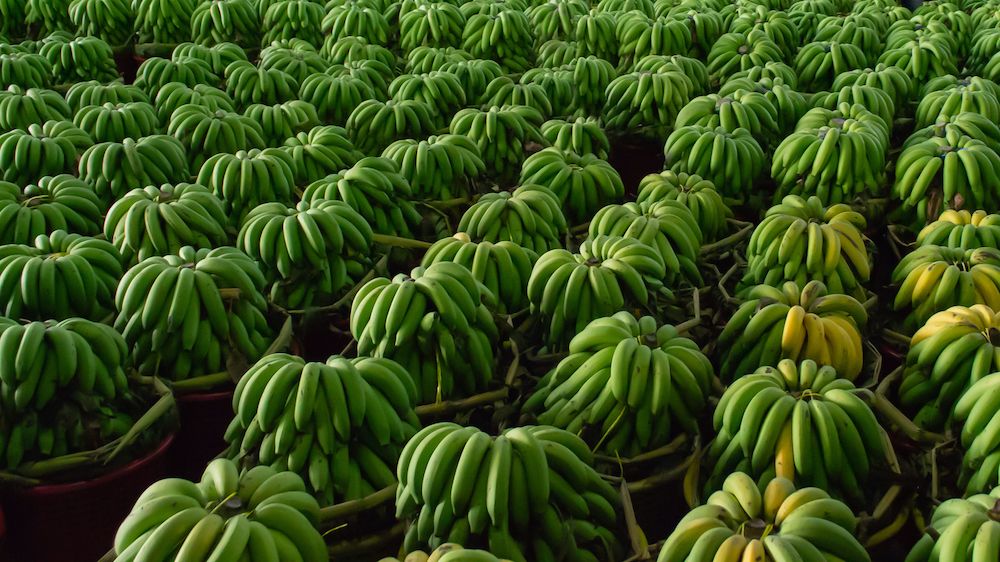Biological crop treatments don’t have the greatest reputation for efficacy, in spite of being kinder on the environment and better for long-term growing conditions than mainstay chemical crop treatments (think soil health). That’s because it’s often difficult to anticipate exactly how active, organic compounds will react to the unique environments they’re applied in.
Switzerland-based AgroSustain wants to change that with a range of time-release, residue-less biological treatments that prevent mould from attacking crops, both pre- and post-harvest.
“We are formulating the products to be stable for the [specific crop’s] necessary period of time. It will be a slow release process for the active ingredient that kills fungal bacteria on crops,” explains AgroSustain’s co-founder and CEO Olga Dubey.
For long-storage crops, that could mean a targeted slow release of active ingredients over three to four months. For perishable crops, maybe only one week of active release.
The company has secured an undisclosed amount of funding from California-based Agroecology Capital, a venture capital firm that invests in sustainability-, safety- and productivity-focused agtech solutions. The funding will enable clear product registration hurdles in Europe and the U.S. for its first line of post-harvest applications.
The company’s target customers are both the food producers growing and storing crops, and retailers who can introduce AgroSustain to their grower networks.
Lab to field
Dubey didn’t plan to become an entrepreneur while she was researching plant resistance to mold as a PhD candidate at the University of Lausanne. That changed once she began identifying anti-fungal compounds.
“I wanted my findings to be more than a research paper, [but rather] a startup that could potentially bring a new natural product to the market,” Dubey tells AFN.
Her mission is to develop biological treatments to replace widely-used chemical solutions, without negatively impacting biodiversity and human health.
“If you ask a grower of grapes if he has an issue with mould, of course he will tell you yes. And if you ask him what he’s currently using, he will say copper, sulfur or chemical pesticides,” Dubey explains. “But one of the key issues is how to protect crops without using heavy metals or chemical treatments.”
AgroSustain’s first products will be for post-harvest application and are being designed in three versions to suit different crop types. The solution can be applied by dipping (for bananas, for instance), spraying (for oranges and apples), via a patented cold vapor (for berries). By the time the food products reach the consumer market, AgroSustain’s solutions will be undetectable.
“The release of the active ingredient will be finished, and it will no longer be detectable on the crop,” says Dubey. “So it will basically be like a non-treated product. And of course, they don’t affect flavor or taste.”
Hazel Technologies, another startup fighting food waste, is developing a vapor-based package technology it claims can triple the shelf-life of produce by slowing the aging process and preventing fungus or decay.
Dubey notes that with few competing technologies, AgroSustain’s corner of the biologicals market complements in-field biological pesticides and fungicides, like the ones 3Bar Biologics and Pivot Bio are producing together, and food “freshness preservation solutions,” that prevent foods from ripening too fast.
That said, AgroSustain eventually intends to develop a range of pre-harvest products.
“What we know is that if we want to have efficient crop protection, we have to start treatment in the field and follow in the post-harvest,” says Dubey.
Details of AgroSustain’s funding support from Agroecology Capital were not disclosed. in 2018, the startup raised a €1 million round, with backing from Venture Kick and the Swiss canton of Vaud, as well as various private investors and family offices.





